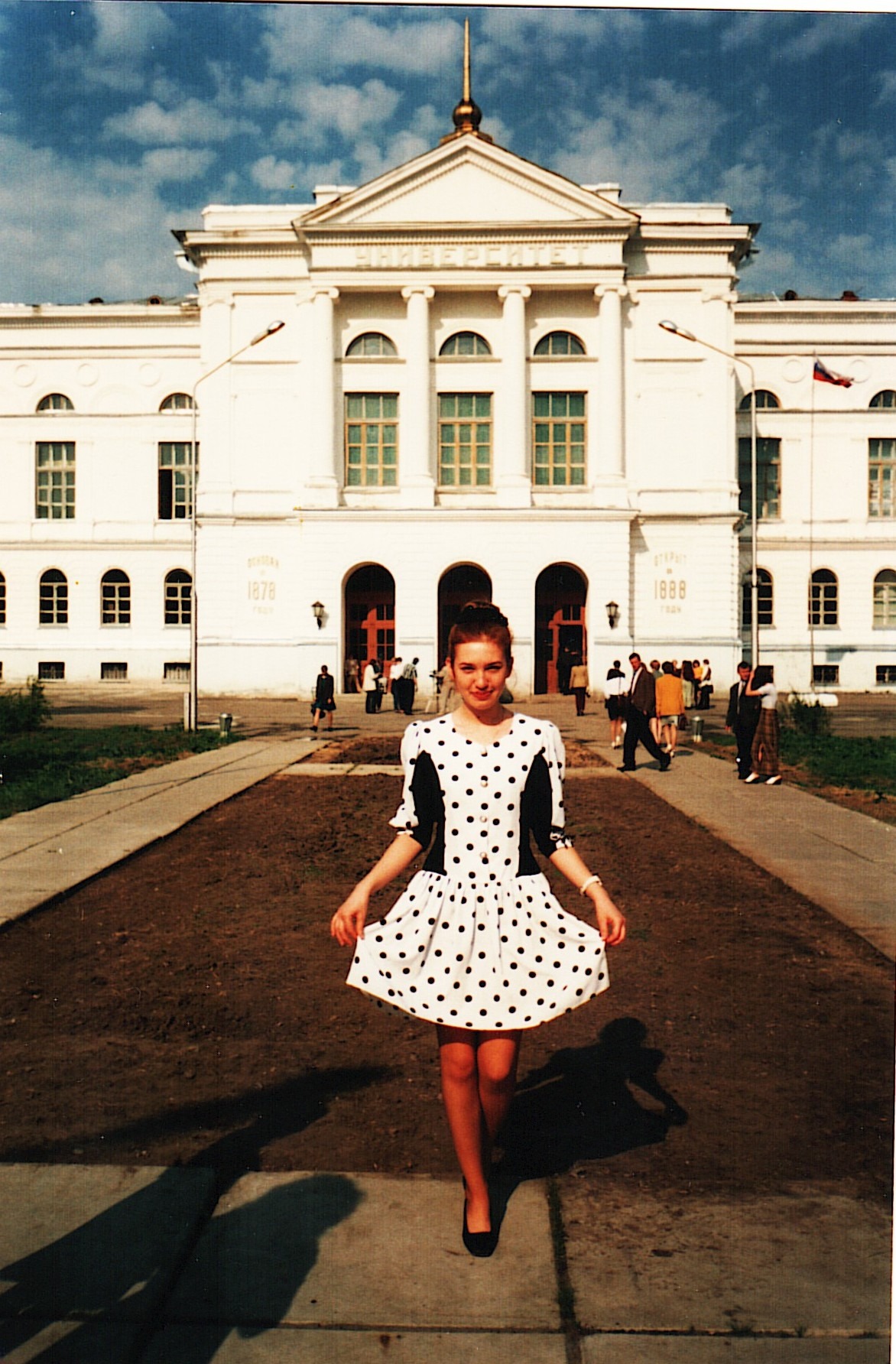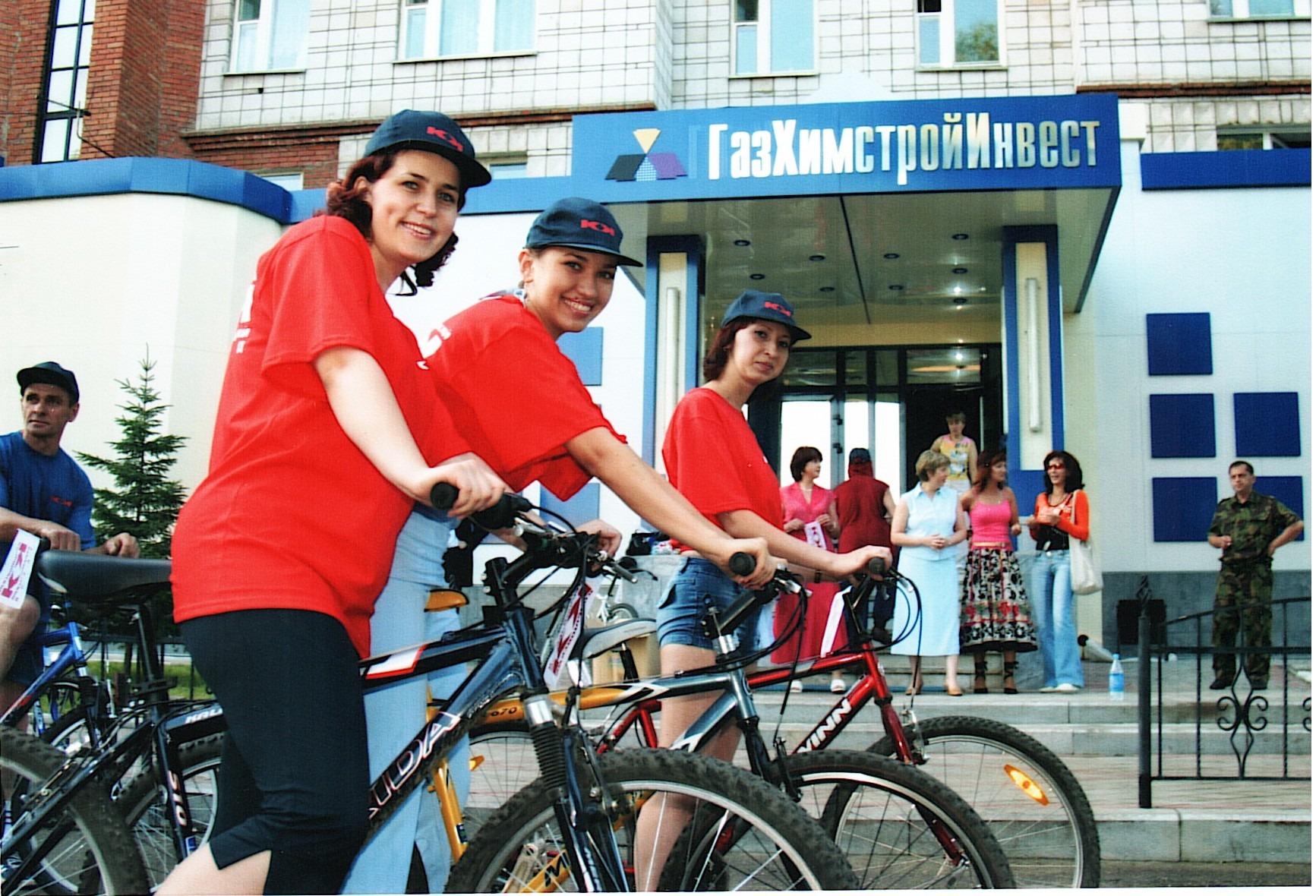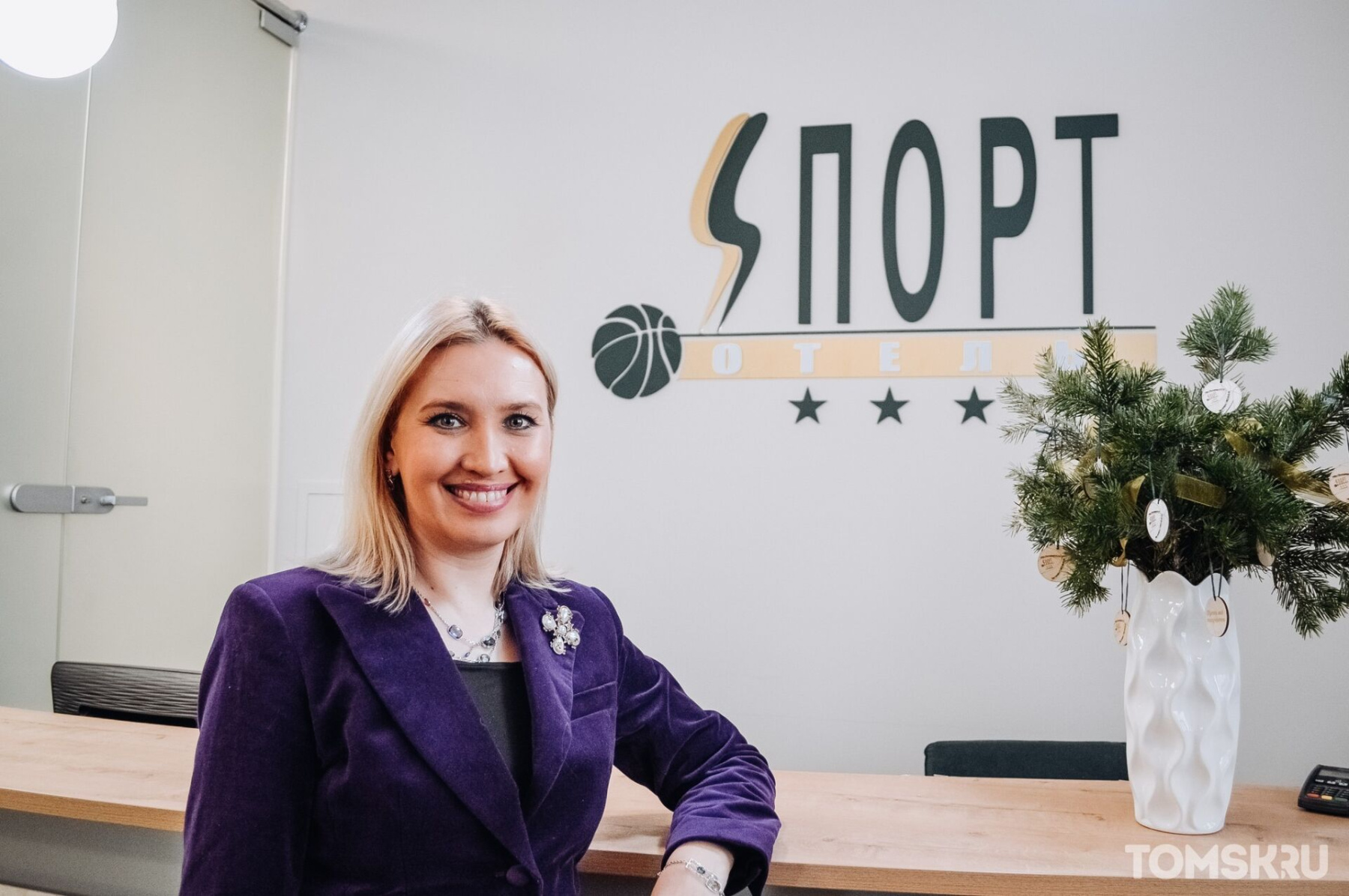Yulia Shtadelman would sometimes bring apples to class as a way to treat her classmates. Hospitality was in her blood. With time, she grasped an opportunity that enabled her to manifest this trait of hers in the most gracious way possible—she opened a hotel in Tomsk. It was at TSU that she found her way and harnessed the skills and knowledge necessary to conduct a business.
She had a dream—to have a bank account packed with money.
Yuliya came to Tomsk from Astana, Kazakhstan. In her last year of high school, she heard her classmate say: “I will be applying to one of the best universities of Russia—TSU.” Yuliya decided to take on the odds and apply too, though she did not even know where Tomsk was. She decided to brush up on her knowledge of Russian history and mathematics and started preparing for the admission campaign.
“In 1997, I imagined success as having lots of money on my bank account. I decided to choose a field of study that would let me work in a bank, so I chose to major in banking and finance at the TSU Faculty of Economics. During admission, I was the only one from Astana and the nearby areas to come to this faculty, and happily I got through!”
“Getting used to the cold weather was tough. As someone from Kazakhstan, I love the sun and the warmth. It was decided that my mom and my younger brother would move to Tomsk with me, and my dad would move later. Despite how harsh the weather may have been, they instantly fell in love with the city: small and cozy, soaked with the academic atmosphere. In Kazakhstan, treating others to dinner, doing little gifts, being hospitable is a custom, and I am happy I was able to preserve this part of me in Tomsk.”
Yuliya and her groupmates did not fear the teaching staff: On the contrary, they treated their professors with utmost respect.
“Our dean, Zinaida E. Sakharova, always radiated human warmth, and we reciprocated that feeling. Strict professors also have a special place in my heart, because some of them can elevate a conversation to a completely different level. One of these professors, Vladimir A. Gaga, made his lectures feel like performances at the Bolshoi Theatre—every class was an event worth attending.”
Yuliya has fond memories of her time at the university. No boundaries, more freedom, and she is sure that her former classmates share her opinion.
“Everyone in our group had something distinct. We were from different cities, often lacked money, but still formed strong connections. It has been twenty years, but meeting someone from back then brings me so much joy. Back when we were 18, life was so different! No phones, no internet, and we had to use a payphone to call someone: Only a select few had cellphones and pagers at that time. The library used to be the place for gatherings, we wrote research papers by hand, and each had a huge book on economics that we had to carry around. I still keep mine to this day.”

But for Yuliya, the university experience was not exclusively positive, and at a certain point she had to reconsider her priorities.
“My dreams of working in a bank shattered when we started attending classes on bookkeeping and accounting. I saw the accounting entries and the crazy numbers and realized that this is not for me. Plus, the rules are so overbearing. White blouse, black skirt, code of conduct… I thought that working in a construction company would be a better alternative.”
Yuliya compiled a CV, took a recommendation letter, visited five construction companies in Tomsk, and got accepted for an internship in the company GazKhimstroiInvest. At first, she was assigned to work in the ceramic factory affiliated with the company and located in the Kopylovo settlement, where she went by bus. And in a a few months she started working in the company itself as an accountant.
“I was ready to try to do anything, because the company had trust in me! I was excited to work among so many departments. Staff members were willing to help, and the management let me pass my exams during company time. I could go in any of the company’s departments and the people there were open for dialogue, so I never felt neglected. Among my coworkers, there were graduates of our faculty too, which contributed to the sense of camaraderie at the workplace. We saw the company grow and develop, and we were part of a big community. It is in GazKhimstroiInvest that I grew as a professional and as a person, and I am very glad to have had this experience.”

Now, Yuliya Shtadelman has managed Sport Hotel for three and a half years. She considers this her business, job, hobby, inspiration, and love. Having become a businessperson, she often remarks that no other position would be as good. This is a place for guests, and for creativity and hospitality, which are closely associated with the museums and restaurants of the city. If you like people, this will inspire you to do something new, to improve, invest, and strive for more.
Yuliya considers any hotel or restaurant to be the face of a city.
“If you market yourself like that, you will adhere to a high level of service. One forms their opinion of a city based on a place they have been staying in for a long time. Not only can a hotel be a place of stay—it can be a gateway to understanding a city, its streets, architecture, universities, cultural icons, museums, cafes, and souvenir shops.”
Being exacting toward the staff means being responsible for the comfort of the people visiting the city and staying at the hotel. Being constantly caring is the job, and the payoff is the guests’ positive feedback.
“I want every guest coming to our city to fall in love with Tomsk just the way I did as a student at TSU. I want them to leave the city with the best impressions possible. I want our city to be the kind of city that people would want to come back to.”
For Yuliya, Tomsk State University was the place for finding her true potential. There she made long-lasting friendships that she maintains to this day. Recently she was invited to Tomsk Industrial College as a lecturer with background in economics.
“I am proud to say that I studied at TSU and soaked in the teaching techniques of our professors. If you are given something of value, with time you want to share it with others as well.”

Photo by: Tomsk.ru and Yuliya Shtadelman
Original article by: Ekaterina Sulaimanova
